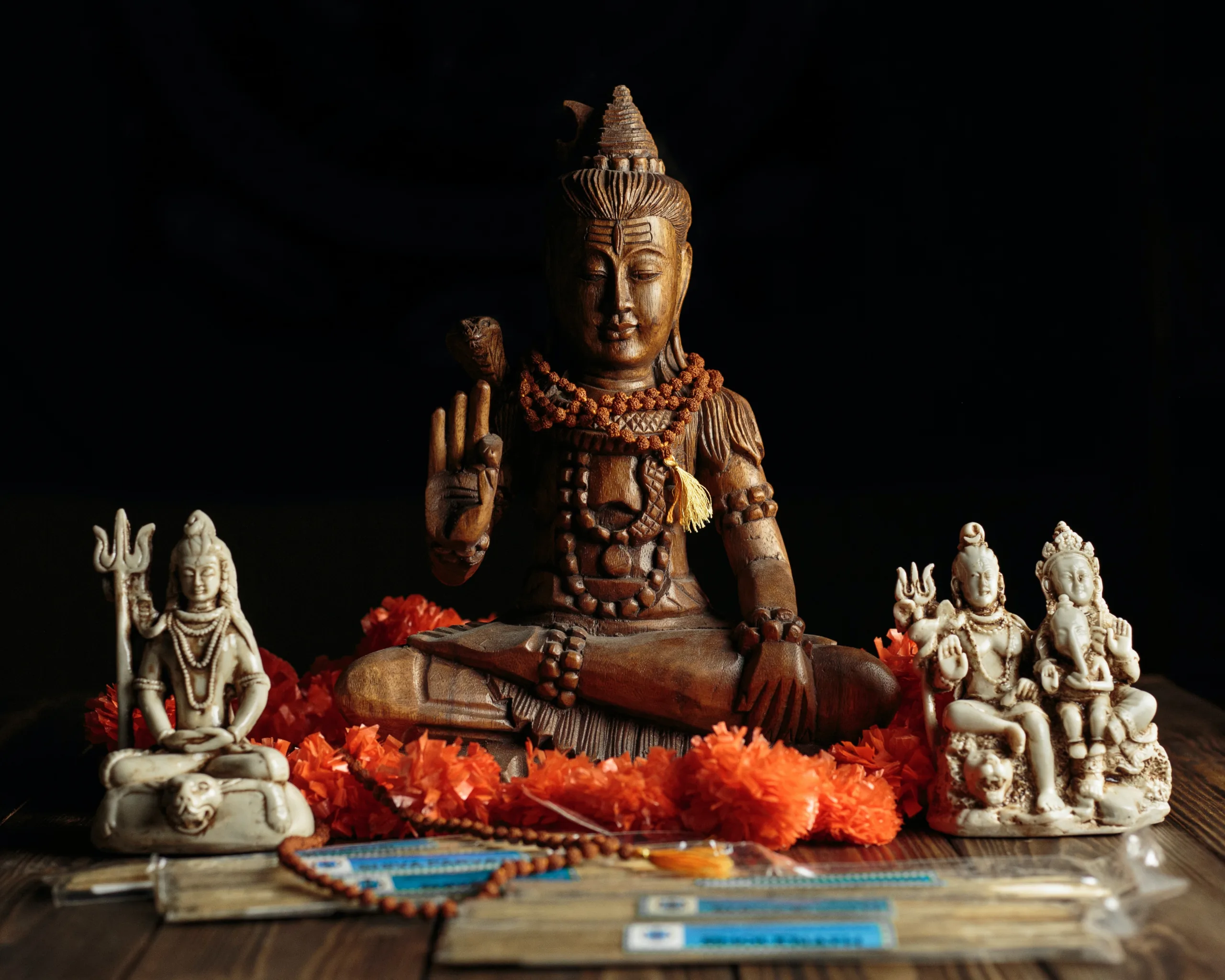Exploring Yoga Gods: Deities and Symbolism in Yoga
1. Introduction: The Divine Presence in Yoga
Yoga, a practice that unites body, mind, and spirit, has deep roots in spirituality and reverence for the divine. Throughout the rich tapestry of yogic traditions, various gods and deities are honored and revered. The inclusion of these divine beings in yoga represents the acknowledgment of the interconnectedness between the physical and the spiritual realms.
2. The God of Yoga: Lord Shiva
In the yogic tradition, Lord Shiva is widely regarded as the supreme god and the embodiment of yogic principles. Shiva represents the cosmic consciousness, the ultimate reality, and the transformative power within each individual. He is often depicted as an ascetic yogi, meditating in deep stillness and immersed in profound transcendence.
Lord Shiva is revered as the Adi Yogi (the first yogi) and the Adi Guru (the first teacher), who imparted the knowledge of yoga to the ancient sages. He is associated with practices such as Hatha Yoga, Kundalini Yoga, and Raja Yoga, which focus on physical postures, breath control, and meditation.
3. Deities Associated with Yoga
While Lord Shiva holds a central position as the god of yoga, there are other deities associated with specific aspects of yoga. Here are a few prominent ones:
- Goddess Parvati: The consort of Lord Shiva, Parvati symbolizes divine feminine energy and is associated with devotion, love, and compassion. She represents the nurturing aspect of yoga and plays a vital role in the balance of Shiva’s transformative power.
- Lord Vishnu: Vishnu is regarded as the preserver and sustainer of the universe. In yoga, he represents the aspect of maintaining balance, harmony, and cosmic order. His presence symbolizes the stability and continuity needed on the yogic path.
- Goddess Saraswati: Saraswati is the goddess of knowledge, music, arts, and wisdom. She is revered as the patron deity of intellectual pursuits and creative expression. Saraswati’s association with yoga highlights the importance of acquiring spiritual knowledge and deepening one’s understanding of the self.
- Lord Krishna: Krishna, an incarnation of Lord Vishnu, embodies divine love, devotion, and selfless action. He is revered as a spiritual teacher and his teachings in the Bhagavad Gita provide guidance for practicing yoga in the context of everyday life.
These deities and their symbolism add depth, inspiration, and spiritual significance to the practice of yoga, creating a connection between the practitioner and the divine.
4. Symbolism and Meaning in Yoga Gods
The yoga gods and deities are not mere religious figures but carry profound symbolism and meaning. They represent universal qualities, archetypal energies, and states of consciousness that practitioners can invoke and embody in their practice. Some common symbolic representations include:
- Third Eye: The third eye, often depicted on the forehead of Lord Shiva and other deities, represents inner vision, intuition, and expanded awareness. It symbolizes the awakening of higher consciousness and the ability to see beyond the physical realm.
- Serpent: The serpent, often seen coiled around Lord Shiva’s neck, symbolizes the awakening of Kundalini energy, which is believed to reside at the base of the spine. Kundalini represents the dormant spiritual potential within each individual, waiting to be awakened and ascended through yogic practices.
- Lotus: The lotus flower is a symbol of purity, spiritual awakening, and enlightenment. It represents the journey of the practitioner, starting from the muddy depths of ignorance and gradually blossoming into a state of divine realization.
These symbols serve as reminders of the deeper dimensions of yoga and its transformative potential.
5. The Seven Gods of Hinduism
In Hinduism, there are numerous gods and goddesses. Among them, seven gods hold significant importance and are known as the Sapta Rishis (Seven Sages) or the Saptarishis. They are revered for their wisdom, spiritual knowledge, and contributions to humanity. The seven gods are:
- Brahma: The creator god, associated with creation, knowledge, and cosmic order.
- Vishnu: The preserver god, associated with balance, harmony, and sustenance.
- Shiva: The destroyer god, associated with transformation, liberation, and transcendence.
- Indra: The king of gods, associated with power, leadership, and divine sovereignty.
- Agni: The god of fire, associated with purification, transformation, and divine illumination.
- Yama: The god of death, associated with the cycle of life, karma, and spiritual transformation.
- Surya: The sun god, associated with light, vitality, and cosmic energy.
These seven gods represent different aspects of existence and the spiritual journey.
6. Frequently Asked Questions (FAQs)
6.1 Who is the god of yoga?
The god of yoga is Lord Shiva. He embodies the principles and practices of yoga, including meditation, stillness, and transformation.
6.2 How many gods are in yoga?
While Lord Shiva is considered the primary god of yoga, there are several other deities associated with yoga, including Goddess Parvati, Lord Vishnu, Goddess Saraswati, and Lord Krishna.
6.3 Are there deities in yoga?
Yes, deities play a significant role in yoga. They represent divine energies, qualities, and archetypes that practitioners can connect with and embody in their practice.
6.4 What are the 7 gods of Hinduism?
The seven gods of Hinduism, known as the Sapta Rishis or Saptarishis, are Brahma, Vishnu, Shiva, Indra, Agni, Yama, and Surya. They embody different aspects of existence and hold great significance in Hindu mythology and philosophy.
7. Conclusion
The inclusion of yoga gods and deities adds a profound spiritual dimension to the practice of yoga. Lord Shiva, as the god of yoga, represents the transformative power and potential within each practitioner. The other deities associated with yoga symbolize various qualities, energies, and aspects of consciousness. By understanding the symbolism and meaning behind these divine figures, practitioners can deepen their connection with the divine and enhance their yoga journey.
8. External Links
For further exploration of yoga gods and deities, you may find the following resources valuable:
